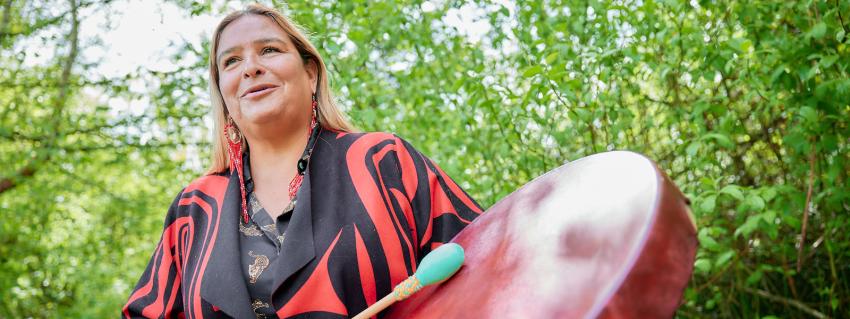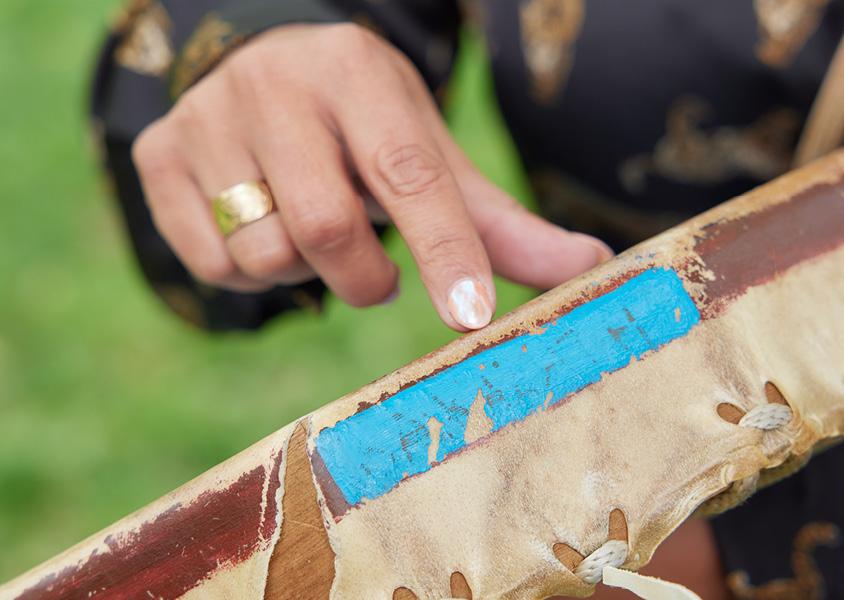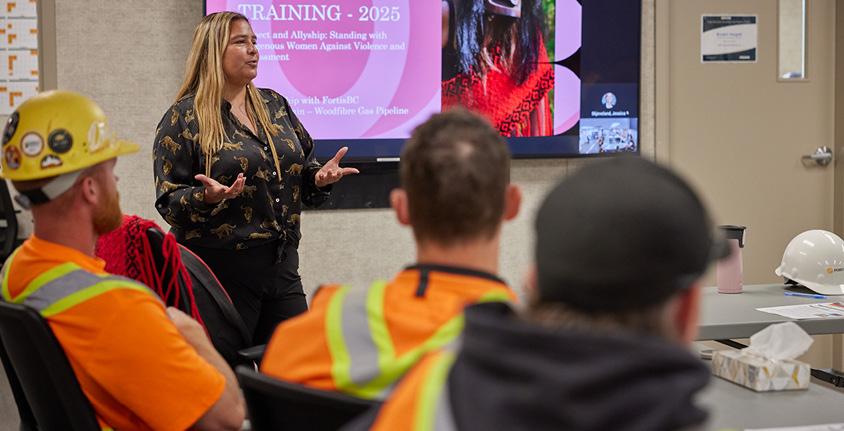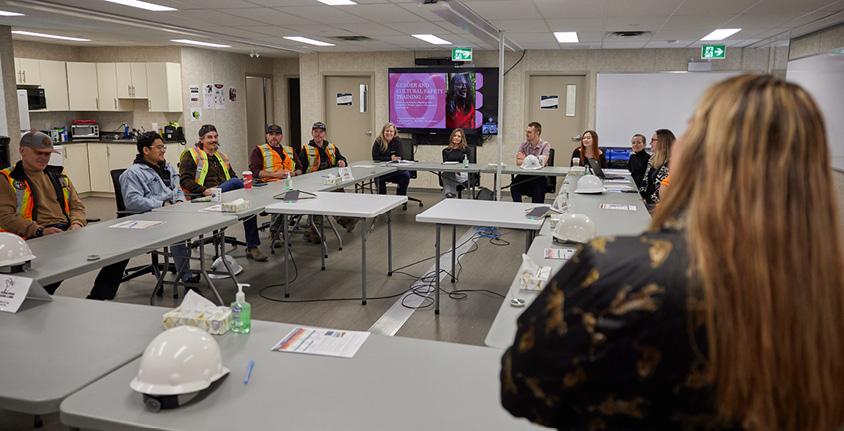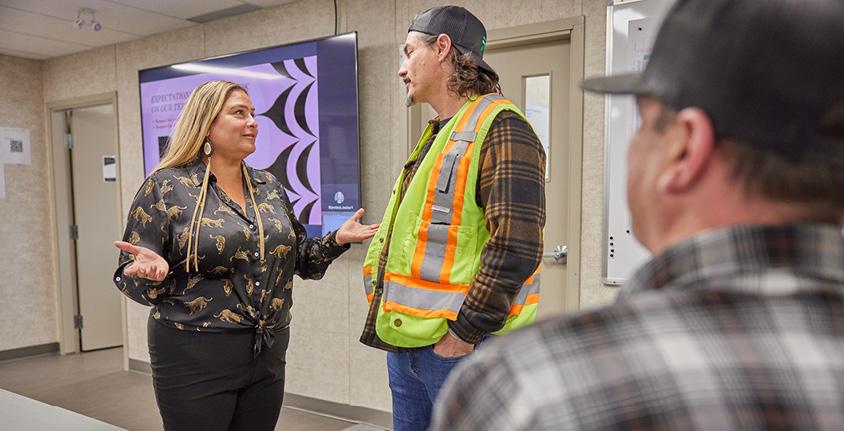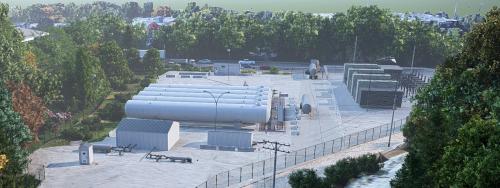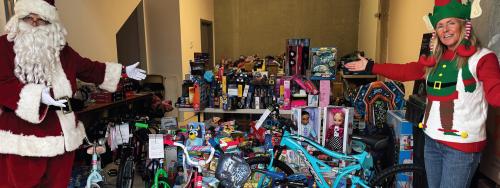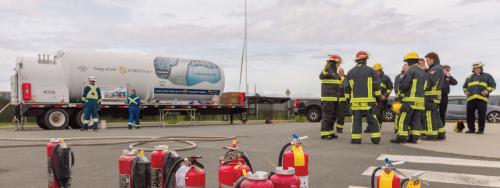Gender and Cultural Safety Training draws on rich knowledge of Sḵwx̱wú7mesh Úxwumixw history and culture
FortisBC has sought to reduce potential workforce impacts from the Eagle Mountain – Woodfibre Gas Pipeline Project. As part of this commitment, FortisBC explored a number of initiatives, including measures to support gender and cultural safety.
A key pillar of these efforts is FortisBC’s Gender and Cultural Safety Training on the EGP Project. At the helm is a well-known leader in the Squamish community, Deanna Lewis, also known by her Sḵwx̱wú7mesh name as Ḵálḵalilh. Shaped by teachings passed down from her grandfather, Deanna embraces her role as a “natural steward of our lands, our waters and our people, especially our women”.
Deanna’s journey to leading Gender and Cultural Safety Training on the EGP Project is far from what one might expect. After an extensive career in both teaching and tourism, Deanna was elected to serve on Sḵwx̱wú7mesh Úxwumixw council in 2017. “At that time, my initial position was to oppose the project”, says Deanna. Her stance, she notes, came from a place of deep mistrust of industry and institutions rooted in generations of harmful post-contact histories. What she learned as she dove deeper surprised her. “I said I want all files on that project. And I found out we were highly consulted. It was gold clad, you know.”
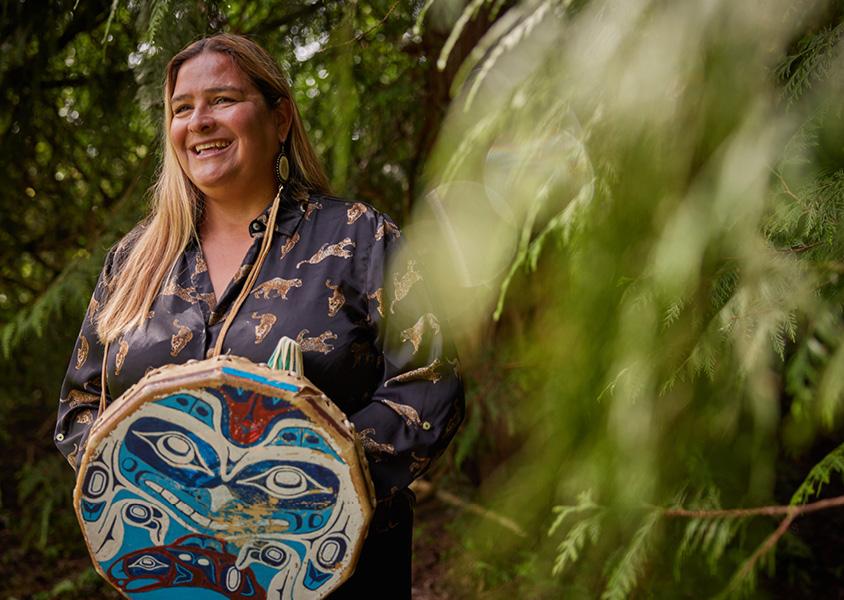
The training at a glance
Fast forward to 2024, and Deanna’s company, Ḵálḵalilh Communications, was brought on by FortisBC to deliver the EGP Project's annual Gender and Cultural Safety training to all on-site project crews and personnel—reaching over 550 people in that year alone.
Deanna’s work is rooted in a deeper calling: to help and protect future generations. “I’m a mother, so I’m a protector,” Deanna says. “That’s my most important role. I’m a mother of three children and I’m breaking cycles in our own communities.”
The training provides an overview of Sḵwx̱wú7mesh Úxwumixw culture and includes building awareness of gender and cultural safety, anti-racism, and risks related to violence faced by Indigenous women and girls and people with diverse gender identity or expression.
Deanna and her associates often share deeply personal stories which Deanna notes are a way to help the audience connect to the national tragedy of Missing and Murdered Indigenous Women, Girls, and 2SLGBTQI+ People. She shares how her training includes the painful story of her own grandmother’s 51-year unsolved murder. She remarks that their willingness to speak to these extremely vulnerable stories underscores just how important it is to bring meaningful attention to this national crisis.
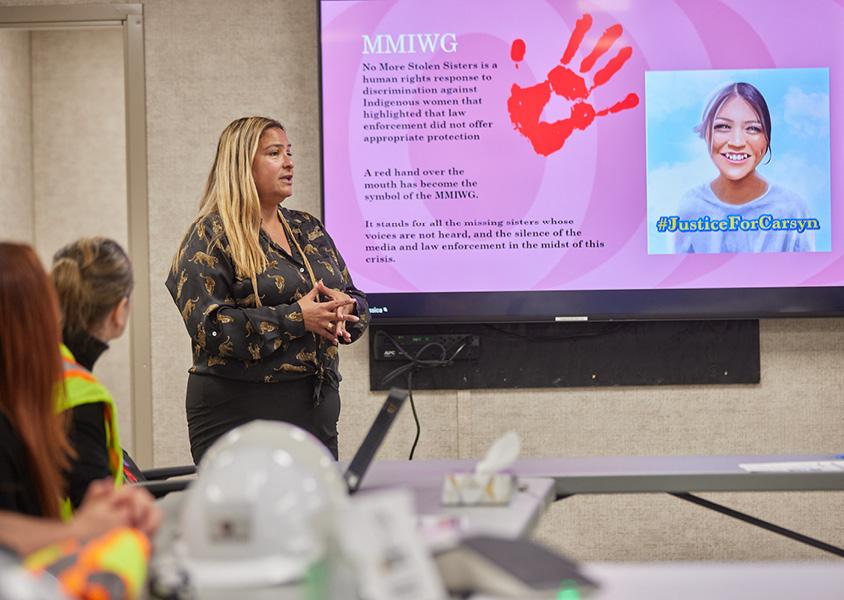
It’s very unfortunate that we all have our own stories of someone we love that’s gone missing and murdered. It's real-life stories that we’re sharing with people, and I think that’s the difference from any other kind of workshop. - Deanna Lewis
By sharing her own lived experiences, Deanna reminds participants that each “statistic” represents a life lost, a family grieving and a community forever changed. She also hopes sharing her story will encourage participants to move from awareness to action. “FortisBC’s decision to make the training annual on EGP throughout construction means there are multiple opportunities for participants to learn about becoming an active ally,” Deanna highlights.
For example, participants can consider taking part in events that are important to the Sḵwx̱wú7mesh Úxwumixw community, like Red Dress Day, which is recognized as the National Day of Awareness for Missing and Murdered Indigenous Women, Girls, and 2SLGBTQI+ People.
According to Deanna, the most important component is the Q&A, which is how she closes each session. “That’s what it’s really about,” she underscores. “I ask people what they are taking away from that day, I ask them: ‘what did you learn that you didn’t know before?’” She emphasizes the importance of being able to look someone in the eye and have a genuine conversation with them, saying it’s “not about blame or shame… [but] about how we work together”.
Building on Deanna’s expertise
The EGP Project’s mandatory Gender and Cultural Safety Training is a first for a FortisBC project. Beyond her work with FortisBC on the EGP Project, Deanna believes her training can serve as a blueprint for other facilitators across the country: “People always ask: how do we implement this in our project?… We could be the bridge.”
The tremendous amount of work that’s gone into developing and carrying out the training is something Deanna says can be replicated and tailored for communities and natural resource projects across the country. While the training may look different depending on the community, the overall goal is to educate, build connections and show people how to be good neighbors and allies.
The importance of trust
Asked about her experience working with FortisBC, Deanna offered warm words. In particular, for EGP’s senior manager workforce lead, Arlette La Freniere, and community relations manager, Michelle Ticas, Deanna beams, “They built that trust with me. I feel like they’ve really listened to me and my concerns, and taken it wholeheartedly.”
Deanna also praised the decision for the training to first go through FortisBC’s EGP Project leadership before rolling out to construction crews.
“Having project leadership do this training first really spoke volumes to me,” Deanna states, “because they’re not preaching, they’re doing and taking it very seriously and I respect that”.
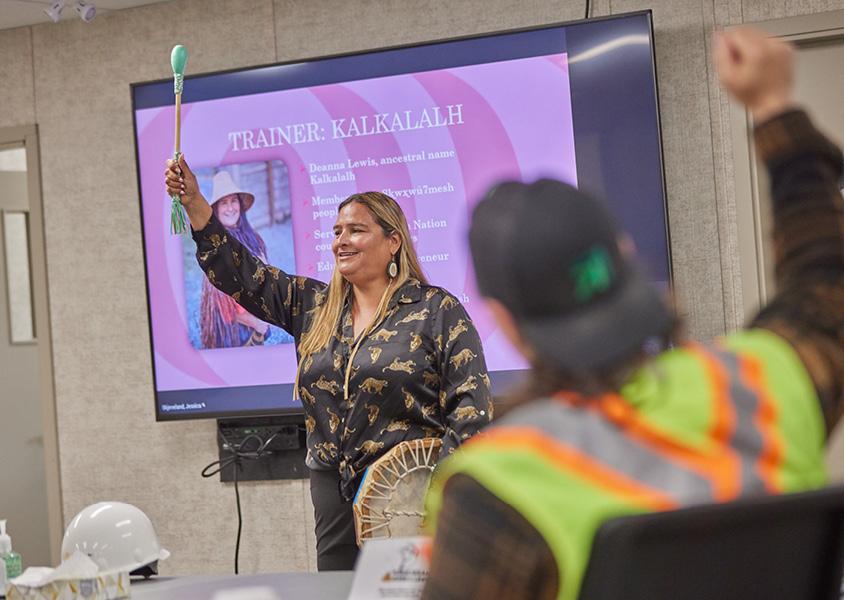
Looking ahead, Deanna is ready to dive into additional EGP trainings this year and hopes to share her blueprint with other facilitators on how to work with industry to elevate this critical topic. At the individual level, Deanna hopes her work will spread not only through her training sessions, but through each worker she has trained.
